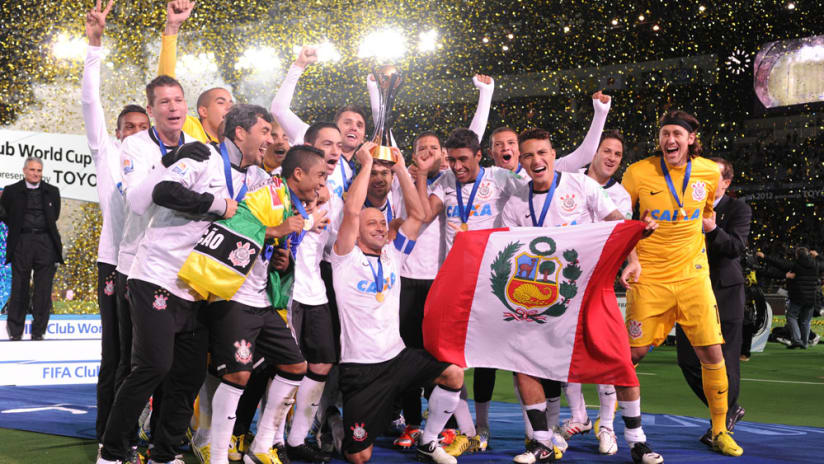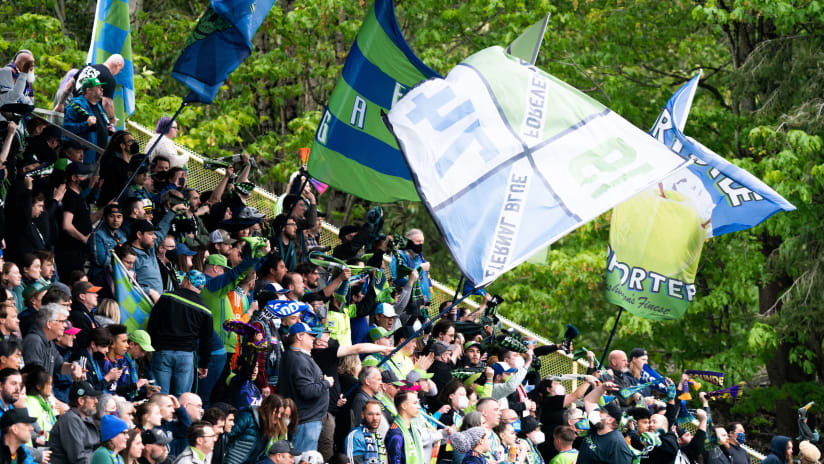The prize for the Sounders winning the CONCACAF Champions League? A trip to Morocco for the FIFA Club World Cup.
With the four CONCACAF Champions League semifinalists heading into next week’s return leg matches just 90 minutes from a shot at CCL glory, let’s take a look at the payoff awarded to the victor of our region’s premier club tournament: a berth in the FIFA Club World Cup.
The Club World Cup is the only true global championship of club soccer. Seven teams participate in the yearly single-elimination, knockout style tournament. Club champions from FIFA’s six global confederations gain entry via their respective continental club championships (CONCACAF Champions League in our neck of the woods). The final berth is awarded to the club champion of the host nation – they enter into the tournament in a playoff with the club champions of Oceania (New Zealand and other surrounding nations.)
Teams from other regions of the globe enter at different phases of the tournament as well. The club champions of North America (CONCACAF), Asia (AFC) and Africa (CAF) are joined by the aforementioned playoff winner in the quarterfinals. Clubs from Europe (UEFA) and South America (CONMEBOL) are drawn directly into the semis.
The CWC was first contested in 2000, the culmination of years of failed attempts by various associations and continental confederations to organize a true world championship of club soccer. Though other competitions came and went – the Intercontinental Cup, Interamerican Cup and Afro-Asian Club Championship to name a few – the 2000 edition of the Club World Cup was the first truly global club championship. An all-Brazilian final saw Corinthians and Vasco de Gama go the distance. After triumphing in PK’s, Corinthians were crowned the first-ever club champions of the world.
The event went on hiatus from 2001 to 2004, in large part due to the collapse of FIFA’s primary marketing partner, Sports and Leisure International. Several attempts were made at a reboot, and the tournament finally resumed in 2005. Both the 2005 and 2006 editions of the Club World Cup were also won by Brazilian sides - São Paulo in ’05 and Internacional in ’06. The next four competitions were won by European clubs: A.C. Milan, Manchester United, Barcelona and Internazionale. Barcelona also won the 2011 edition, becoming the first club to win multiple Club World Cup titles.
The title returned to Brazilian hands in 2012, with Corinthians narrowly beating English Premier League side Chelsea in the final to join Barça as multiple title holders.
Historically, CONCACAF teams have had limited success in the Club World Cup. Liga MX competitors Necaxa and Monterrey share the honor of being the region’s highest finishing teams in the competitions, having both finished the tournament in third place; Mexican sides Pachuca and Atlante have both finished as high as fourth. Pachuca, incidentally, leads all CONCACAF clubs in CWC berths with three. Defending CCL champions Monterrey have appeared twice.
No MLS side has ever qualified for the FIFA Club World Cup, though the LA Galaxy came very, very close when they won the CONCACAF Champions’ Cup in 2001. The club, led by current Sounders coach Sigi Schmid, even got as far as the group draw (they were slated to face Real Madrid in their opening match) before the entire tournament was cancelled.
Though acknowledged by FIFA as a true club championship, different global confederations put varying amounts of emphasis on the importance of the Club World Cup. Competitors from UEFA have often taken the event a bit less seriously than teams from CONMEBOL and CONCACAF, who relish the opportunity to compete globally. It hasn’t helped that in years past the event has only been held in one of two locales: Japan or the United Arab Emirates. Not exactly prime-time viewing material for folks on our side of the pond.
It’s certainly hard to quantify just how important a berth in the Club World Cup would be for a Major League Soccer franchise. The Seattle Sounders, for example, are relatively big fish in MLS. Their global profile, however, is much smaller than CWC competitors from UEFA or CONMEBOL, and the opportunity to compete globally would be invaluable for the Rave Green. Though we’ve seen the Sounders compete against global giants like Barcelona and Manchester United in friendly matches, there was little at stake in those games. Playing a competitive match against a side like that would mean a massive amount of publicity; a win against a side like that would provide an MLS club with an opportunity to proclaim their arrival on the global stage.
The 2013 and 2014 FIFA Club World Cups will both be hosted in Morocco, and none of the 2013 participants have been determined yet. The Sounders and LA Galaxy both have a chance to become the first MLS sides in history to book their spot in the Club World Cup, though they’re both in need of a monumental road performance next week to keep their hopes alive.







